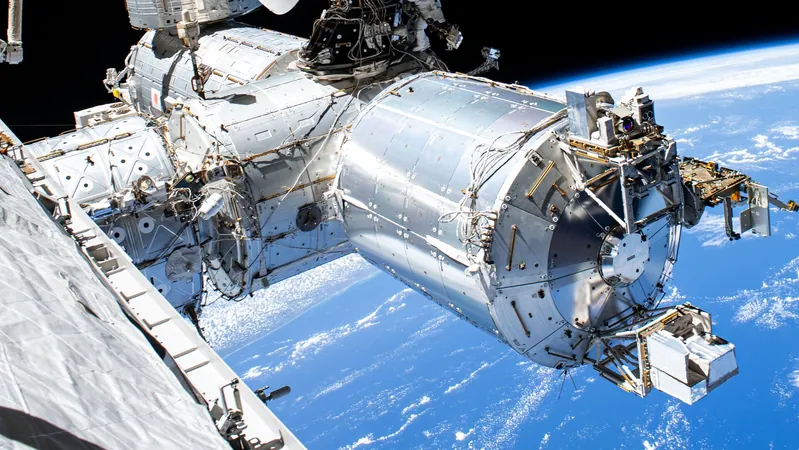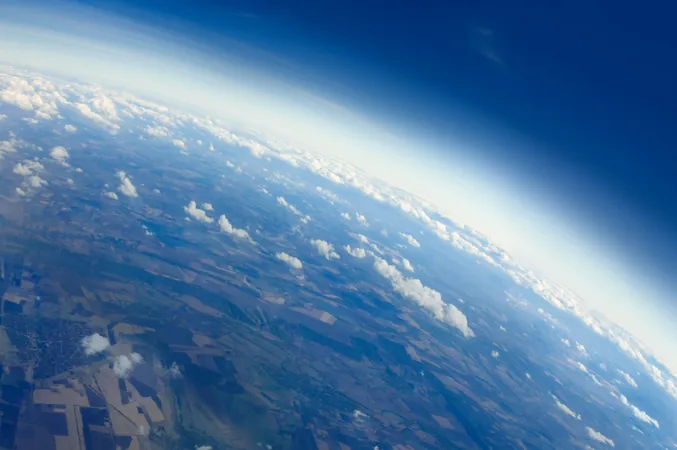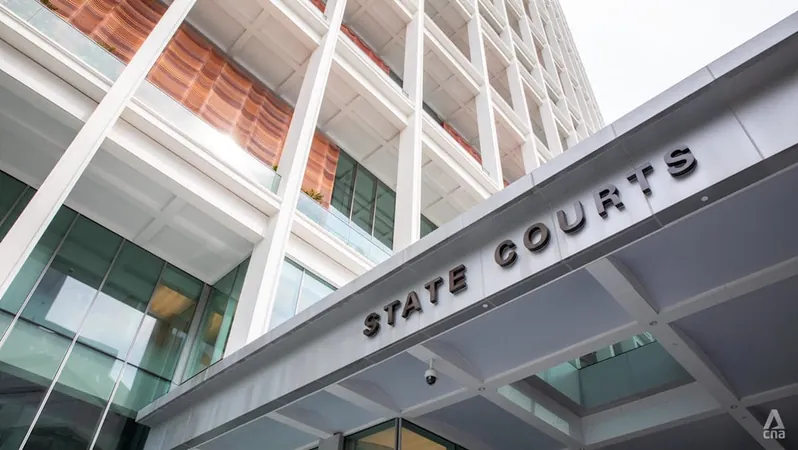
Columbus Laboratory: Celebrating 100,000 Orbits Around Earth!
2025-09-13
Author: Wei Ling
A Milestone in Space Exploration
On December 9, 2025, the Columbus laboratory aboard the International Space Station (ISS) proudly completes its incredible 100,000th orbit around Earth. This incredible feat marks a significant milestone for Europe’s premier science module in the cosmos, showcasing years of dedication and innovation.
Journey Through the Stars
Since its launch in 2008, Columbus has orbited at an astonishing speed of 28,800 km/h from approximately 400 km above the Earth’s surface. Over an impressive span of 6,427 days, it has journeyed more than 4.26 billion kilometers, welcoming astronauts from over 20 different nations and facilitating hundreds of experiments—from groundbreaking studies on human health to advanced material science.
Engineering Marvel of Europe
Developed by Airbus, the Columbus module represents a remarkable engineering triumph. Its construction brought together expertise from various European locations, resulting in a sophisticated system equipped with thousands of components working in harmony. This monumental collaboration epitomizes Europe's capabilities in space exploration.
Crafted for Cosmic Challenges
Columbus is built to withstand the extreme conditions of outer space, engineered for long-term human habitation. It endures temperature fluctuations ranging from scorching +120°C in the sunlight to frigid -150°C in shadows, while also offering protection against radiation and micrometeoroid impacts.
A Hub of Scientific Endeavors
Within its 7-meter-long, 4.5-meter-wide expanse lies ten experiment racks, each a mini-laboratory. These facilities allow scientists to harness the unique microgravity environment of space, unlocking phenomena that remain elusive on Earth.
Cutting-Edge Research in Microgravity
From cutting-edge plasma experiments and pioneering 3D metal printing to essential studies on bone density and cognitive function, the research conducted in Columbus has far-reaching benefits for both astronauts and those on Earth. So far, the module has facilitated over 250 unique experiments, with more on the horizon.
Empowering Future Generations
Columbus isn't just a scientific laboratory; it’s also an educational hub. Programs like AstroPi have engaged over 163,000 students, allowing them to write and execute their own programs in space, thus igniting a passion for science and technology among the next generation.
Around-the-Clock Operations
Operations for Columbus are managed 24/7 by dedicated teams at the Columbus Control Centre near Munich, Germany. They’ve successfully executed over 19,000 shifts since the module's installation, ensuring that every aspect of its mission goes smoothly, from system checks to astronaut support.
International Collaboration in Space
Columbus has welcomed 16 ESA astronauts along with space travelers from the United States, Canada, Japan, and beyond. Some astronauts have utilized the module as a cozy temporary living space, complete with sleeping quarters.
Celebrating European Excellence
As Columbus reaches this extraordinary milestone, it stands as a beacon of European excellence in space exploration. More than just a laboratory, it embodies collaboration, ambition, and innovation, laying the groundwork for future technologies like the Orion European Service Module, which aims to carry humanity back to the Moon as part of NASA's Artemis program.
Discover More!
Explore our Q&A feature for fascinating facts, figures, and behind-the-scenes insights into Europe’s remarkable laboratory in the stars!





 Brasil (PT)
Brasil (PT)
 Canada (EN)
Canada (EN)
 Chile (ES)
Chile (ES)
 Česko (CS)
Česko (CS)
 대한민국 (KO)
대한민국 (KO)
 España (ES)
España (ES)
 France (FR)
France (FR)
 Hong Kong (EN)
Hong Kong (EN)
 Italia (IT)
Italia (IT)
 日本 (JA)
日本 (JA)
 Magyarország (HU)
Magyarország (HU)
 Norge (NO)
Norge (NO)
 Polska (PL)
Polska (PL)
 Schweiz (DE)
Schweiz (DE)
 Singapore (EN)
Singapore (EN)
 Sverige (SV)
Sverige (SV)
 Suomi (FI)
Suomi (FI)
 Türkiye (TR)
Türkiye (TR)
 الإمارات العربية المتحدة (AR)
الإمارات العربية المتحدة (AR)